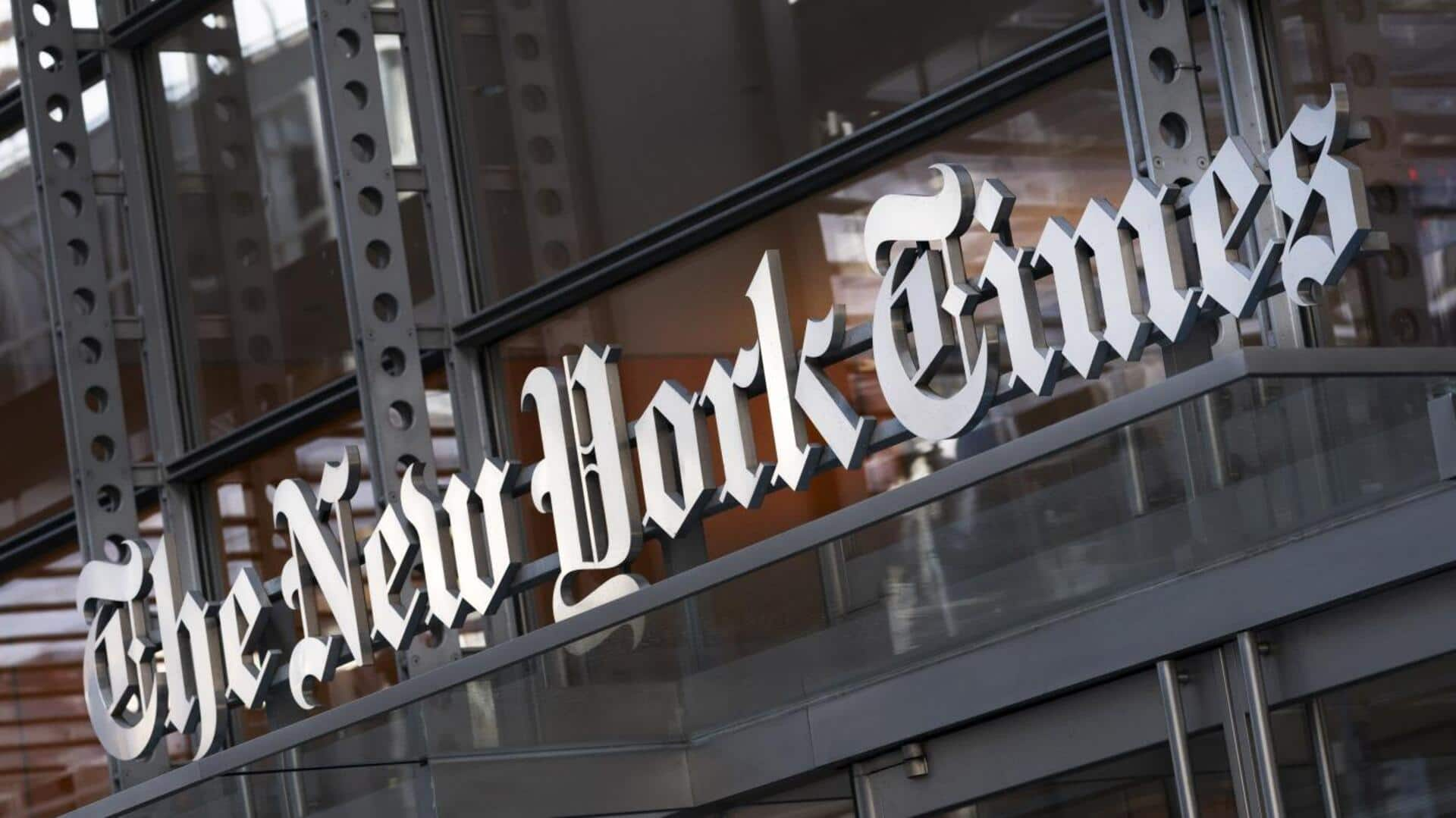
Could ChatGPT go down? NYT's lawsuit against OpenAI raises questions
What's the story
The New York Times and other news organizations have sued OpenAI, the maker of ChatGPT. The lawsuit accuses OpenAI and its main investor Microsoft of violating copyrights by utilizing their content without authorization or payment. The case consolidates three lawsuits filed by The New York Times, The New York Daily News, and the Center for Investigative Reporting. At the heart of the publishers' argument is the fact that ChatGPT's data contains millions of copyrighted works from their organizations.
Core argument
Publishers argue OpenAI's use of content is unlawful
The lawsuit alleges that these articles were used without any consent or payment, amounting to large-scale copyright infringement. "[OpenAI's] unlawful use of The Times's work to create artificial intelligence products that compete with it threatens The Times's ability to provide that service," the NYT's lawyers said in an amended complaint.
Defense strategy
OpenAI defends its actions under 'fair use' rules
In response to the allegations, OpenAI has defended its actions by invoking "fair use" rules. These rules allow the use of copyrighted material for research, educational, or commentary purposes. To pass the fair use test, the work must change the copyrighted work into something new and not compete with the original in the same marketplace. Microsoft's lawyers argued it was not illegal for OpenAI to ingest journalistic text.
Alternative approaches
Other publishers have reached content-sharing deals with OpenAI
While some news organizations are taking the legal route, others such as the Associated Press, News Corp, and Vox Media have opted for the content-sharing route by striking deals with OpenAI. The litigants claim ChatGPT's global success is partly due to its use of copyrighted articles and now presents competition as a reliable information source. Meanwhile, The Times's complaint indicates OpenAI could be liable for billions in damages for allegedly copying and using its archive illegally.
Lawsuit consequences
Potential implications of the lawsuit on OpenAI's future
The lawsuit calls for the destruction of ChatGPT's dataset, a move that could deal a major blow to OpenAI as it would have to rebuild its dataset using only authorized works. Federal copyright law carries heavy financial penalties, with fines up to $150,000 for each willful infringement. AI scholar Daniel Gervais noted, "Copyright law is a sword that's going to hang over the heads of AI companies for several years unless they figure out how to negotiate a solution."